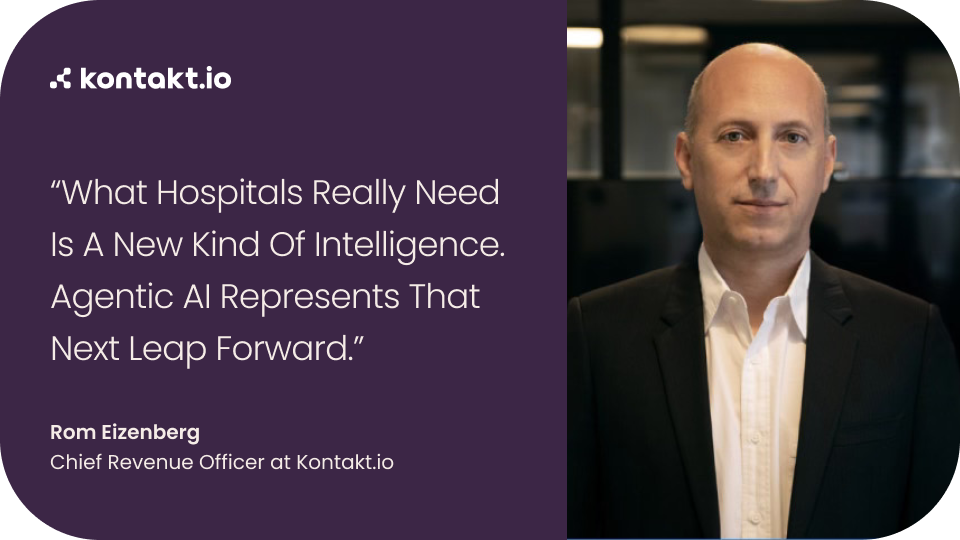At the heart of every hospital is the patient. Yet the demand for ancillary services that support care, and the supply of resources that enable it, often operate in isolation, intersecting only when problems arise. The result? A repetitive, daily cycle of reactive coordination that drains energy and undermines efficiency. A meaningful first step toward true change is the ability to see beyond the immediate—to anticipate what’s coming before it’s too late to act.
New AI systems, such as the Kontakt.io Intelligent Orchestration Platform, can analyze live hospital data and predict resource needs based on patient journeys, department activity, and hospital-wide acuity. Such foresight is invaluable, but data alone can’t fix coordination. Simply giving leaders more information still leaves humans—already stretched thin—responsible for interpreting vast datasets and making complex decisions on the fly.
What hospitals really need is a new kind of intelligence. Agentic AI represents that next leap forward: software that not only analyzes and predicts but also acts. In ancillary services such as supply chain, facilities, environmental, and dietary support, an AI agent can identify the best next action, execute it automatically when appropriate, and adapt in real time as conditions change. It can place orders, assign tasks, and balance workloads without waiting for a human supervisor to intervene. This marks the arrival of a new generation of action-oriented hospital systems that blend broad data awareness with reasoning—all aligned to leadership priorities.
But technology alone won’t transform care operations. To truly reshape hospital coordination, deeply ingrained assumptions must be challenged. Take equipment ownership: gear should not be confined to individual departments. It should flow freely between units, balancing inventory to match current and future patient needs. Using historical patterns and predictive demand, an AI agent can redistribute resources automatically, ensuring every patient has what they need—without excess stock gathering dust.
Another outdated assumption is that nurses will handle everything. Nurses already carry an immense burden. Streamlining how they request and track support is critical. AI should be able to understand natural language requests from clinicians, translate them into operational terms, generate orders, and track fulfillment automatically—flagging issues before they disrupt care.
And perhaps the most fundamental belief to rethink is that services should run on a first-come, first-served basis—except in emergencies. Hospitals are complex systems, and not all tasks are equal in urgency or impact. Delays early in a patient’s stay can add unnecessary days to hospitalization, driving up costs and consuming capacity. AI can prioritize dynamically, weighing patient status, length of stay, and organizational goals to ensure resources are directed where they matter most.
The outcome? Ancillary team leads reclaim half their time, shifting from manual task assignment to proactive problem-solving. Nurses spend more time with patients instead of chasing equipment or waiting on support. Supply chain technicians tackle issues before they become emergencies. Utilization climbs, rentals fall, and stress across the entire system eases.
This is what an AI-orchestrated hospital looks like: a human-centered, high-performance ecosystem powered by prediction, automation, and intelligent coordination. With Kontakt.io’s Intelligent Care Orchestration AI, leaders can ensure every resource is in the right place, at the right time, every time—without excess staff or inventory. The fog lifts, clarity returns, and the hospital begins to flow.
